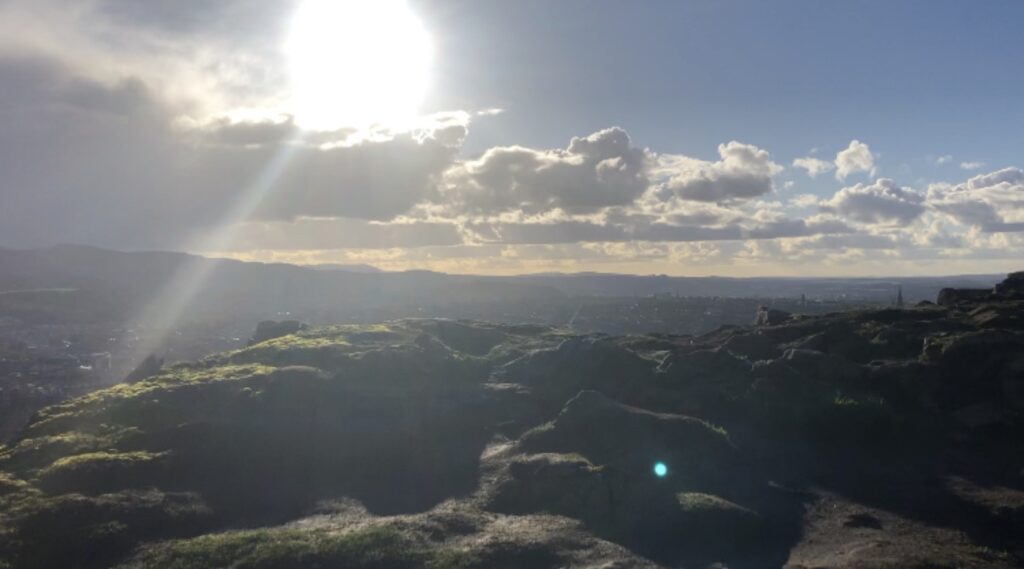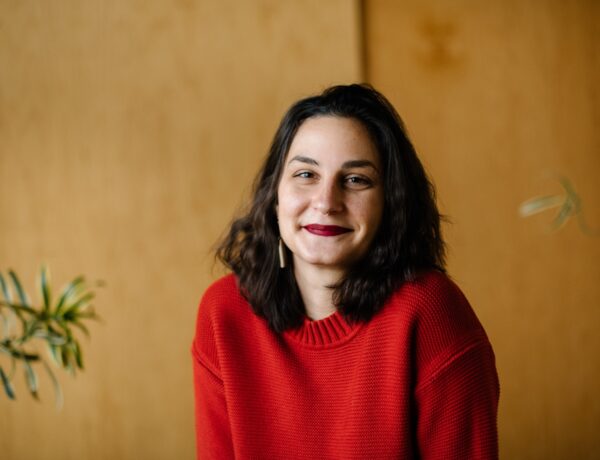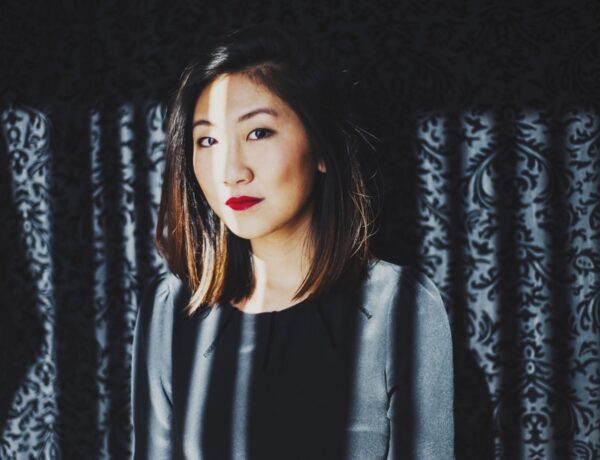Joseph Fasano is an author, poet, and educator who began his academic career with studies in mathematics and astrophysics at Harvard University, but ultimately found his calling in philosophy of language and poetry.
Fasano is the author of two novels: The Swallows of Lunetto and The Dark Heart of Every Wild Thing , which was named one of the “20 Best Small Press Books of 2020.” His books of poetry are The Crossing, praised by Ilya Kaminsky for its “lush drive to live, even in the darkest moments”; Vincent, which Rain Taxi Review hailed as a “major literary achievement”; Inheritance, a James Laughlin Award nominee; and Fugue for Other Hands, which won the Cider Press Review Book Award and was nominated for the Poets’ Prize.
Each week, we publish a new daily writing routine from a famous author. Subscribe to our newsletter so you don’t miss out!
Hi Joseph, welcome to Famous Writing Routines, great to have you here with us today! Congratulations on the success of your latest novel, The Swallows of Lunetto! You’ve also written several books of poetry, as well as a previous novel, The Dark Heart of Every Wild Thing. Can you talk to us about your approach to writing across different genres, and how your creative process differs depending on the medium?
I’m interested in silence at least as much as I’m interested in language. It seems to me a piece of writing is successful if it shapes the silences inside it so that they are resonant and meaningful. In a poem, this may mean the words allow the reader to hear their own deepest questions in the spaces between those words. In a novel, it often means an exploration of what is unsaid, or even unsayable, between characters. I think a piece of writing exists to give the reader their own song, their own story.
You studied mathematics, astrophysics, and philosophy before pursuing a career in writing and education. How do these diverse fields of study influence your writing and teaching, and what unique perspective do you bring to your work as a writer and educator?
I don’t believe in the idea that each of us has to be only one thing. That’s an internalization of a culture of commodification. Instead, I believe the human imagination is unique in its ability to synthesize diverse pieces of information that are mysteriously and emotionally related to one another, with connections that only a thinking and feeling creature can make. For me, a seemingly simple five-line lyric poem can have behind it years of study of the most eclectic and esoteric subjects. Ultimately, though, I believe all this material must be distilled into the pure, clear articulation of a mystery.
Your poetry has been widely anthologized and translated into many languages, and your book The Dark Heart of Every Wild Thing was named one of the “20 Best Small Press Books of 2020.” How does it feel to receive such recognition for your work, and how do you balance the need for critical acclaim with the desire to write for yourself and your readers?
I started writing simply because I felt I had to, and I still do. I need it to make sense of my experiences, or at least to find the form of the mystery behind those experiences. If recognition comes, so be it, but all of that is fleeting anyway. What matters is the unfaltering dedication to the attempt to say something true and clear. If I can help even one person feel understood when they read my work, I feel I have done something worth doing.
Do you struggle to stay focused while writing? You’re not alone! That’s why Famous Writing Routines recommends Freedom – the ultimate app and website blocker for Mac, Windows, Android, iOS, and Chrome. With over 2.5 million users, Freedom helps writers stay on task and avoid distractions. Get started for free today and reclaim your productivity!
The Crossing, your most recent book of poetry, has been praised for its “lush drive to live, even in the darkest moments.” Can you talk to us about the themes and inspirations behind this collection, and how you approached the challenge of capturing such complex emotions in your writing?
The Crossing grew out of a very difficult time in my personal life, and I wanted to write poems that others could read for comfort and consolation in the trying moments of their own hearts. I wanted to convey the complexity of those moments rather than reduce them artificially to any “meaning” that was too neat and tidy. Sometimes the best consolation is reading something that honors the complexity of your own experiences.
In addition to your writing, you’re also a songwriter, and your debut album, The Wind That Knows The Way, is available for streaming and purchase. Can you talk to us about your approach to songwriting, and how it differs from your work in poetry and prose?
Writing songs is very different from writing poems for the page, in that the lyrics of a song have the music against which to counterpoint their rhythms. My songs are very simple things—a few chord shapes and some lines that, I hope, allow listeners to imagine their own places in what’s being sung. The title song of that album is one I’m particularly proud of.
You’re the founder of the Poem for You Series, a digital space that offers recitations of listeners’ favorite poems by request. Can you share with us some of the most memorable requests you’ve received, and what this project means to you as a writer and educator?
We’ve received so many wonderful requests. One of my favorites was a mother who wrote on behalf of her ten-year-old daughter, who wanted to hear Mark Strand’s poem “A Morning.” Mark was a teacher and friend of mine later in his life, so it was very meaningful for me to recite this one myself. I love hearing that children are into poetry. Perhaps they understand it instinctively before the world tries to convince them they don’t.
Can you tell us about your writing routine? What does a typical day look like for you?
Well, now that I have a one-year-old son, my writing routine is in a bit of disarray. But I wouldn’t have it any other way! That said, I write every day. Usually I wake early and try to sketch out some ideas. If I’m working on a novel, I’ll begin where I left off and try to hammer out a few pages before the world catches up with me. At times I’ve done 15-hour work days on a novel, for months at a time, stopping only for meals and the occasional long walk. When I’m working on poems, I like to carry them with me in my mind, tinkering as I walk, as I work, as I live. Then they often have a way of finding out what they’re trying to be.
If you could have a conversation with any author throughout history about their writing routine and creative process, who would that person be?
I suppose my answer would change often, but today I would like to be able to speak to Gerard Manley Hopkins. I’d want to hear him speak about his profound devotion to the craft and magic of writing. And then maybe we’d take a long walk in the hills of Scotland, where I am now.
I’d love to know about the books you’re reading at the moment. What have been some of your favorite recent reads?
At the moment I’m reading Iris Murdoch’s The Sea, The Sea. I’ve recently read several of Michel Houellebecq’s novels, including The Elementary Particles and The Map and the Territory. I’ve also recently read Elena Ferrante’s Neapolitan Novels and Paul Mariani’s excellent biography of Robert Lowell, and of course I’m always reading poems—older poems, newer poems, and brand new poems in the rich landscape of literary journals. In short, I’m usually reading many things at once. I like the way they cross-fertilize and inform one another.
What does your current writing workspace look like?
Since I travel a lot, my writing space changes all the time. Sometimes I work at my home in New York, but today, as I write this, I’m working in Edinburgh, at the desk of a friend, looking out into this Northern sunlight and hearing the lovely accents pass by on the street below. Wherever I can find some quiet, some good people, and the promise of a few free moments, I can usually listen, and be still, and begin to hear what’s trying to be heard.

Affiliate disclaimer: Some links on this website are affiliate links. We may earn a small commission if you make a purchase through these links, but only promote products we truly believe in. We disclose affiliate links and give honest reviews.



No Comments